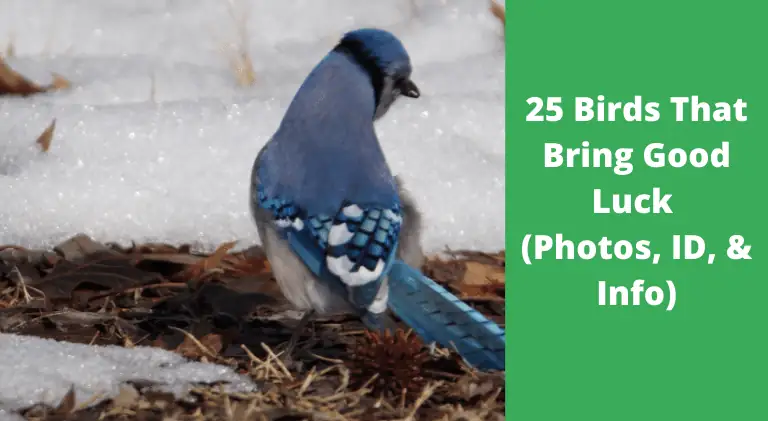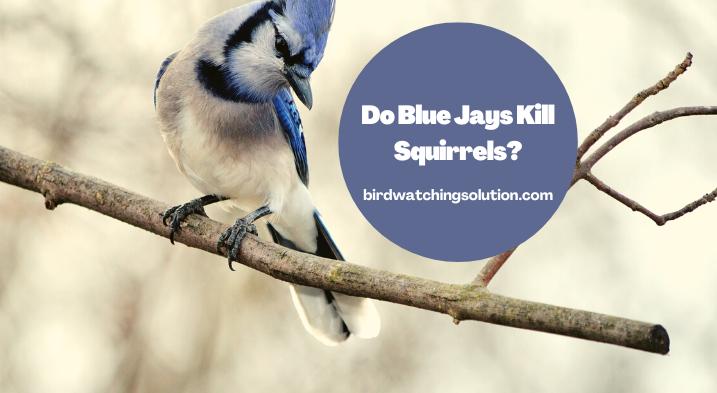Where Do Birds Sleep When It Rains?
You may have already noticed how intelligently birds build their nests. But have you ever thought about them when it is raining? So where do birds sleep when it rains right?
When it is raining birds sleep in both natural and human-made covers such as caves, bushes, tree cavities, barns, or under the roofs. Yet, their primary preference is to find a place that is safe and quiet.
Interesting right? There’s a lot more to learn when it comes to learning about the behavior of birds during the rain. Luckily you have come to the right place because I’ve already got you covered.
In this article, you will not only learn about where birds sleep when it rains. But you’ll also find out how different birds react to rainy weather. So if you are interested in learning all this, keep on reading!
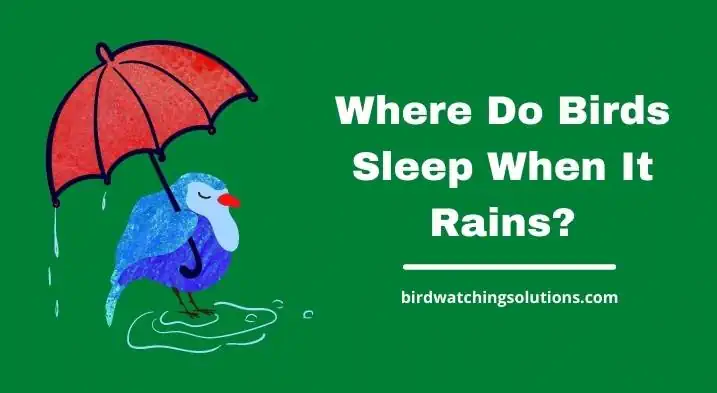
Where Do Birds Go When It Rains?
As mentioned earlier, birds will seek cover from the rain both during the day and night time. But what do they do and where do they go during the rain? That is something you might be interested in learning about.
Most birds don’t even react to light drizzle. Why? It is because their feathers are water-resistant due to a special kind of gland in their bodies. This special gland is called the preen gland. It secrets oil which protects the feathers from getting wet when it rains.
So there is no need for those birds to move around during light rain. They can just remain inside their nest. However, during heavy rain, birds may look for some places outside their homes including trees, bushes, rocks, etc.
They use the leaves and branches of these plants to gain additional protection from being soaked by raindrops. In order to prevent them from becoming too cold, they always carry with them some dry materials like grasses and twigs.
What Happens When Birds Sleep in Rain?
Since birds have these special glands that help their feathers remain dry you might be thinking why do they still hide from the rain. What will happen if they sleep in rain. Well, actually there are two main reasons.
The first one is that their glands do not produce the oil rapidly to counter heavy rain. The next reason is that if they get wet then there is a higher chance of them getting hypothermia. This happens because they lose heat through their body quickly.
When it rains, the moisture forms droplets on their feathers resulting in the loss of heat which eventually affects the temperature of their body. If this temperature drops below 32℃ (90˚F) then they will get into serious problems.
Where Do Sea Birds Sleep When It Rains?
One of the most interesting things that I have ever found about sea birds is their ability to sense storms from miles away. This ability makes them unique and allows them to evade quickly before the storm arrives so that they won’t have to deal which heavy rain.
Birds like seagulls and pelicans are some of the most common sea birds that are known for sensing storms.
Facts to Know: People living near coastal areas usually observe the presence of seagulls and associate them with storms. If there are no seagulls around then there is a higher chance of a storm coming.
As I already mentioned, the preen gland of the birds helps to protect them from getting wet in rain. Still smaller birds don’t like to face storms and they try to hide before their arrival. It is because during the intense storm they may not be able to fly easily.
Sometimes you may have seen birds laying on the ground after heavy rain. This happens when the birds are sleeping on tree branches and suddenly it starts to rain. They avoid flying in rain and instead of flying they choose to stay motionless to preserve their energy and heat.
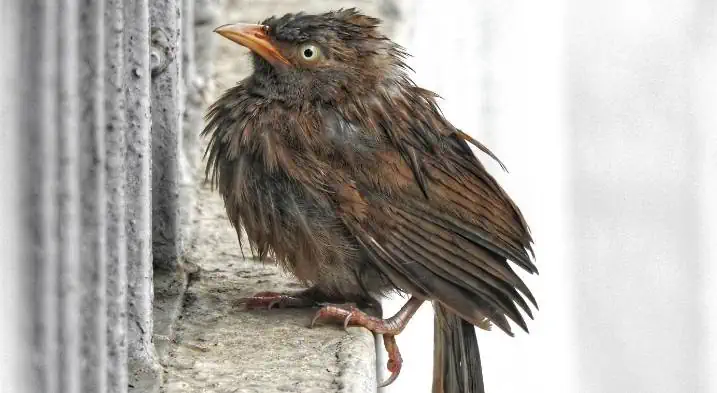
Where Do Song Birds Sleep When it Rains?
Seagulls and pelicans are seabirds and they are able to withstand heavy storms too up to some extent. But what about songbirds? what happens to them during the rain. Where do they sleep? How do they cope with rain? And also how do they save themselves from becoming wet?
Songbirds such as warblers, thrushes, sparrows, jays, finches, etc. love singing and dancing around. During the rain, these small birds usually try to hide in the foliage. They remain silent and don’t move as much as they can to preserve their energy.
While they are hiding from the rain, they usually align their face with the direction of the wind. This way they don’t have to deal with extra air resistance and as a result, their body won’t lose much heat until the rain is over.
Where Do Raptors Go When it Rains?
Raptors are hunting birds and they don’t worry too much whether it is raining or not. It is because they can easily fly or sleep during the rain. However, they still choose to remain in the tree cavities or other protected places.
The reason behind this is that they won’t be able to catch any prey during the rain as almost all small birds sleep in a hidden place during rain. Thus instead of wasting their energy in flying, they choose to stay in their nests and sleep peacefully.
Do Birds Like The Rain?
Not all birds like it when it rains. However, there are some birds such as ducks are extremely happy during rain. Whenever it rains, they enjoy every moment of it by preening their feathers and playing in the puddles.
Flooded areas help them create new territories since there are usually fewer predators during the rain. Apart from that, when there is plenty of rain, the larvae of insects come out to the surface which is the favorite food for ducks.
Having that said, even ducks may not be able to withstand harsh weather such as intense storms. Therefore, they quickly find shelter whenever the situation is about to get out of control.
How To Keep Birds Safe From Stormy Weather?
There are many things we can do to help our feathered friends survive during the bad weather season. It will help make their life easier and you will be able to see more of them even in cold or rainy seasons.
1. Build Bird Houses for Them
If you own a farm, having birdhouses on your property is very important. You can build them in different shapes but make sure they are big enough for birds to live comfortably.
They need a house that has lots of space and is free of snakes, owls, and foxes since these animals would eat them immediately. If possible use wood and keep the doors closed while the birds are inside.
Also, keep the roof covered especially if there’s a strong wind. Make sure you add at least one nesting box inside the structure. Inside the nest should have a wide-open area where the eggs and chicks could land safely without being harmed or crushed.
2. Plant Trees That Can Help Your Feathered Friends.
You can always plant trees that are native to your climate so that they can provide protection from heavy storms in case of severe weather. Some examples include oak (Quercus) and maple trees.
In addition, planting shrubs such as wisteria (Wistaria), honeysuckle (Lonicera), and holly (Ilex) will also help protect your birds from dangerous winds. They can easily build their nests in these trees and live happy life.
Can Birds Tell When Rain Is Coming?
We, humans, are capable of predicting rain with our latest inventions and technology. However, the question is what about birds? are they able to tell when rain is coming? Well, birds are able to tell about weather conditions by sensing the change in the air pressure.
They are able to sense the change in weather by determining the air pressure in the air sacs attached to their lungs.
This helps them know whether a storm is coming or not. After predicting storms they try to find shelter for their sleep. Birds are able to maintain differences in altitude as small as five meters.
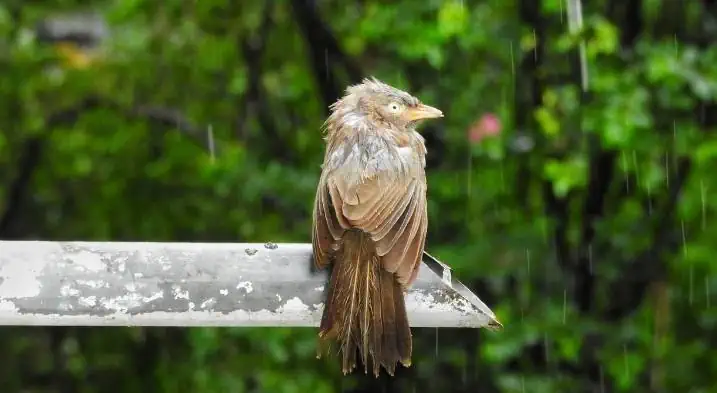
What Do Nesting Birds do When It Rains
During the wet season, most birds go into their nests to rest. Some birds tend to stay outside their nest while others prefer to remain under leaves. There are various kinds of birds that migrate to the south when winter comes around.
However, most of them return to their nesting grounds after the dry season ends. Many species of birds take advantage of warm weather and start building nests before the springtime arrives. Some birds even begin nesting when it rains.
Why Don’t Birds Fly in the Rain?
Birds don’t fly in rain due to the reduced pressure in the air due to which they are not able to get the required amount of aerodynamic lift. This results in the consumption of more energy during flight.
This is why birds usually avoid flying in the rain and sleep in protected places instead of flying. During the rainstorms, the air pressure drops significantly which makes their flight harder.
Especially, birds such as eagles, who enjoy thermals are not able to fly well due to the reduced amount of pressure.
How Mother Birds Protect Their Babies During the Rain?
Baby birds lack feathers and thus they are not able to withstand downpours, unlike mature birds. Since they don’t have feathers, therefore, they won’t be able to trap their body heat and maintain their temperature. This is why they are fully dependent on their mothers whenever it is raining.
Mother birds provide protection to their baby birds during the rain by covering them underneath feathers. It provides an insulating layer of protection and helps trap heat to maintain their body temperature.
Final Words
So where do birds sleep when it rains? It depends on the type of bird actually. For example, small birds try to shelter in manmade structures such as houses, barns, etc. However, some birds also sleep under caves, or in tree cavities.
Their main goal is to not only protect themselves and their babies from the rain but also from predators. I hope you’ve enjoyed this article you can also share it with your friends by clicking the share buttons.
Don’t forget to leave feedback for me as it is the only way I can improve my content and make it more helpful for my readers.
Thank you for reading!


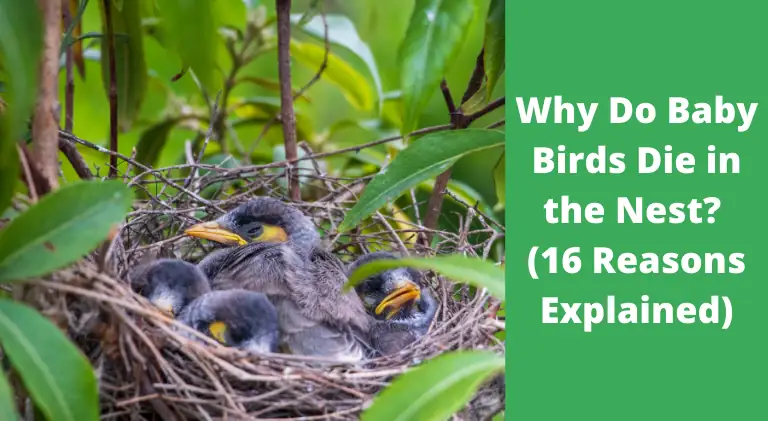
![How Much Does a Trained Hawk Cost? – [Facts Explained]](https://birdwatchingsolution.com/wp-content/uploads/2021/12/How-Much-Does-a-Trained-Hawk-Cost.webp)

